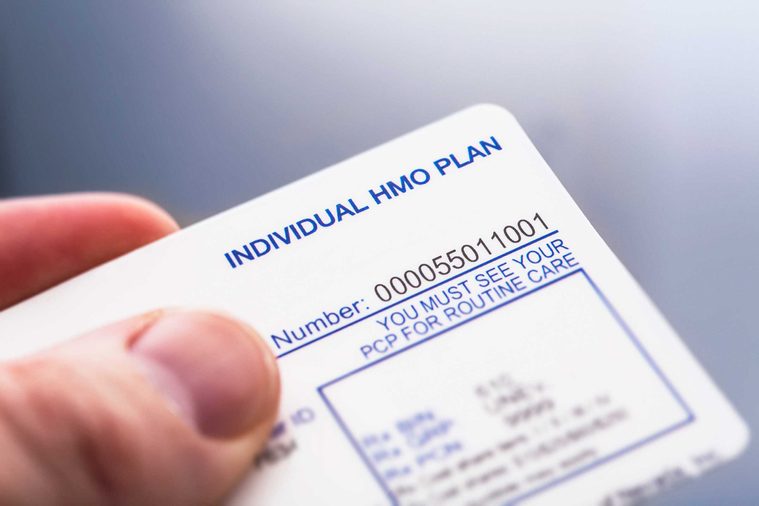
Consult your health insurance plan
No matter how much you value a potential doctor’s bedside manner, you’ll most likely want to choose someone who is covered by your health insurance plan. That doesn’t have to be a limitation: Many plans have special designations for doctors who have consistently met standards of quality. Keep those in mind when narrowing your search. Check out these secrets for finding the best doctor that every doctor uses.

Refer to online reviews (with caution)
Although online reviews have become a major assistant in deciding where to go for dinner, the medical community hasn’t quite caught up. Because of this, most professionals advise against choosing a doctor solely based off reviews. That said, they’re worth checking out, as long as you take them with a grain of salt. Websites like Healthgrades.com and ZocDoc are two of the first places to look. Here is what your doctor is really thinking but will never ever say to you!

Assess their credentials
Check to make sure your doctor is board certified in the area of medicine you’re visiting him or her for. Accomplish this quickly by plugging their name into the search bar at the American Board of Medical Specialties. Watch out for these signs you can’t trust the health advice you found on the web.

Keep an eye out for red flags
It’s a doctor’s job to ensure that all their patients are given the best healthcare they need and deserve. But just like any occupation, there are a few bad doctors in the midst of the medical field. “You certainly don’t want someone who has had a lot of malpractice claims,” Orly Avitzur, MD, told Consumer Reports. You can weed out the really bad doctors from the good ones by doing a brief malpractice claim or disciplinary action search. Propublica, the nonprofit organization for investigative reporting, has compiled a nifty chart that shows you how to look up a doctor’s license online and obtain any related disciplinary documents in each state. Don’t miss these 16 red flags that say you need to fire your doctor immediately.

Ask around
Consulting people you know—friends, family, and other medical professionals who take part in your care—what they think of a doctor’s service is a great way to get a feel for how trusting other patients feel around him or her. Ask how open they feel talking to the doctor, how receptive he or she is toward questions, and what it’s like interacting with other staff members.

Do a get-to-know-you interview
The National Institute of Aging recommends scheduling interviews with prospective doctors. The office might charge you for this one-on-one, but it could help you decide if the two of you click. Once you get there, they suggest asking questions to help you figure out if the doctor is a good fit for your concerns. For example: “Can I call or email you or your staff when I have questions?” “Do you charge for telephone or email time?” and “What are your thoughts about complementary or alternative treatments?” Open up a dialogue about the things that are important to you, and take into consideration how receptive the doctor was to them. Think, “Did the doctor give me a chance to ask questions?” and “Was the doctor really paying attention to me?” Don’t miss these tips and tricks for making the most out of your next doctor’s appointment.

Inquire about drug reps
You don’t want a doctor who prescribes you a drug because a pharmaceutical representative sold him or her a great pitch or promised to compensate them for pushing the drug onto their patients.“That can get patients started on a brand-name medication that may be more expensive or may not be the best one for them,” Doris Peter, PhD, told Consumer Reports. Make sure you ask the doctor their thoughts about drug representatives during your first visit. A good, trusting doctor gives you medical treatment based on your specific health needs and the best scientific evidence not pressures from the industry.

Don’t overlook the office dynamic
Just because you and a potential doctor get along great doesn’t mean your relationship will be completely stress-free. A practice’s nurses and office staff play a huge role in creating a comforting and trustful environment. If anything seems off about your interactions with other staff members, bring it up to your doctor. These are the signs of a good doctor and a bad doctor.

Bring someone with you
It never hurts to have a second set of eyes and ears to help you gauge if a doctor is a right fit for you. “Bring along a friend or family member to remind you of the questions you want to ask, and to help you write down important notes,” David Harrison, MD, a staff physician at Massachusetts General Hospital told moneycrashers.com.

Go with your gut
In the end, choosing a doctor is a personal decision. Because they’re a person you’ll be sharing a lot with, do a gut check. If you don’t feel like you’ll be able to tell them intimate details, continue searching. Here are the 14 things you should never lie to your doctor about.